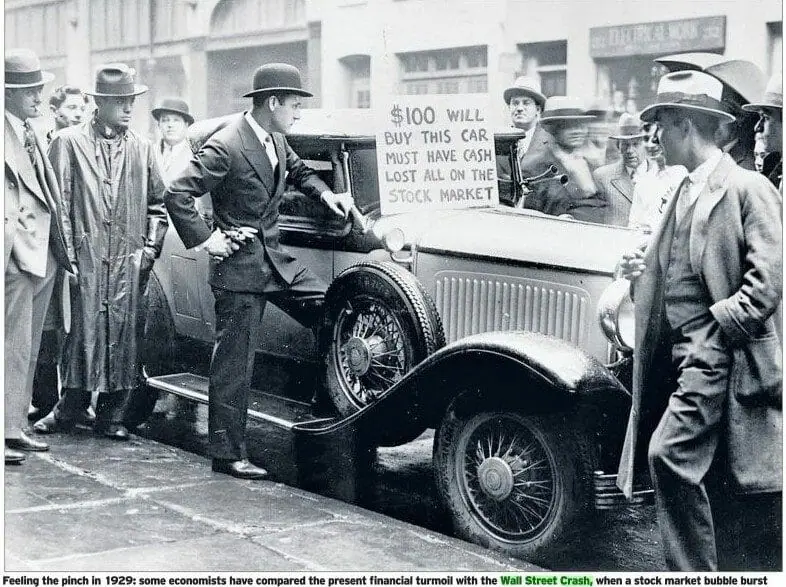

Let's Talk!
If you have questions about using Gale LibGuides or A-to-Z list import files, please feel free to reach out to Gale's Academic Outreach & Engagement team. We are happy to help you customize, copy, share and upload materials to your Institution's site.
 Through the Financial Times Historical Archive scholars can access information from the era of the Wall Street Crash and also much later articles which analyse the impact of the crash on various economies over time. For example, in an article called "Lessons from a 1930s rebound that petered out" written by John Kay in 2009, he outlines the history of both British and American economic markets in the 1920s and 1930s, and how they have affected economic decisions today. Interestingly, Kay explains that the initial crash was not an extremely dramatic event, it was in fact relatively minimal; it was the decisions and actions the government then pursued which made the economic situation far worse. In Kay’s words: “There is not much dispute that government actions after 1929 made the crisis worse, even if there is still controversy about the relative contribution of restrictive fiscal policy, inept monetary policy and protectionist trade and financial strategies”.
Through the Financial Times Historical Archive scholars can access information from the era of the Wall Street Crash and also much later articles which analyse the impact of the crash on various economies over time. For example, in an article called "Lessons from a 1930s rebound that petered out" written by John Kay in 2009, he outlines the history of both British and American economic markets in the 1920s and 1930s, and how they have affected economic decisions today. Interestingly, Kay explains that the initial crash was not an extremely dramatic event, it was in fact relatively minimal; it was the decisions and actions the government then pursued which made the economic situation far worse. In Kay’s words: “There is not much dispute that government actions after 1929 made the crisis worse, even if there is still controversy about the relative contribution of restrictive fiscal policy, inept monetary policy and protectionist trade and financial strategies”.
When compared to the economic downturn in 2007-2008, you can find the policy mistakes were the opposite: monetary policies (which change interest rates and influence money supply) and fiscal policies (which involve governments changing tax rates and levels of government spending to influence aggregate demand in the economy) are strongly expansionary.